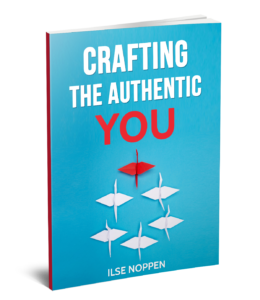‘You are not good at maths. You need to work harder at it!’ ‘Join the competition – you need to learn to go for the win’ Sounds familiar? Throughout our upbringing we have been encouraged to nurture some of our talents but unfortunately, also some energy drainers.
We are all born with talents and energy drainers. While there are things you naturally enjoy, there are others you enjoy less or not at all.
An energy drainer is an activity that literally drains your energy: you feel tired after doing it, especially mentally, or you feel like postponing or even dropping the activity altogether. Remember, a talent is not about what you can do, but about what you love to do. If it drains you, it is not a talent – even if you can do it.
When identifying energy drainers, make sure you are referring to tasks and activities, not circumstances. You may be a born team player, but this talent may only manifest in a certain environment or with a certain group of people.
Excellence comes through inner drive, which is not something you can force. You need to pay attention to your nature to know what to nurture. Don’t nurture what doesn’t drive you.
Here are 5 ways being aware of your drainers helps you.
You know what to focus on
When you do something you don’t like, you may give it your best and even be very good at it, but you won’t stand out or excel and more significantly, it will never become an energy giver – something that gives you joy. Additionally it is hard to compete with someone who is stimulated by that same activity! Therefore, avoid putting time and effort in what drains you and rather put time and effort in developing your talents.
The sheer fact of being aware of your drainers shifts your energy
Unfortunately, it is not realistic to scrap your energy drainers from your list of daily activities altogether (sigh), but by being aware of them you can reduce their impact on you and minimise having to use them. The simple fact of being conscious of your energy drainers creates less irritation. There is a significant difference between getting irritable and annoyed when doing your sales call and tackling it with the right mindset – knowing it is a drainer, but hey, just getting it done! Additionally you can look for tools which can help you do the task or get more efficient.
It improves your relationships
I had a colleague who was very detail oriented – annoyingly so in my eyes. I on the other hand am not that detail oriented (or like to choose when I am). So whenever this colleague brought up a detail, I got annoyed, an emotion which was picked up by my colleague. Additionally, that annoyance blurred my vision sometimes: I stopped at my emotion and wanted to get on with things. As it turned out though those remarks were often valid.
Thus I learned to put my irritations aside and embrace the talent of my colleague, giving enough space to details. That had a positive impact on our relationship.
Delegate or reallocate!
Let’s revisit job descriptions. We are hung up on what we believe we need to do. Give yourself permission to do job crafting where possible. You may well find that the things you don’t like doing are energy givers for other people!
Tap on your strong talents to realise your goal
I had a client whose job involved sales, in the sense of convincing partners, which is a drainer for him. However, he realised there were strengths he could draw upon to get to his goal. Those were: strategic thinking (anticipating, thinking of consequences,…), perseverance (focussing on his goal) and empathy (looking at and understanding the needs of the partners). Focussing on these strong talents shifted his energy and as a result, those meetings with the partners much less draining for him.
While it is crucial to know your talents and inner motivations, it is also important to know and accept your drainers. For many of my clients, this has been an eye opener. In the end, you will work more efficiently and feel more energized.
What drains you and what can you do differently?
